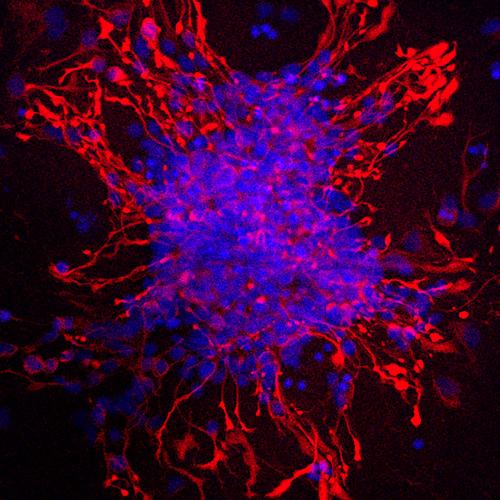Project 1: Maternal Immunity in MIA Susceptibility
Principal Investigator: Judy Van de Water, Ph.D.

Maternal infection increases susceptibility of offspring to psychiatric and neurodevelopmental disorders, including schizophrenia (SZ). Animal models of maternal immune activation (MIA) support this link, because mid-gestational injection of poly(I:C) induces behavioral and neuropathological abnormalities in adult offspring in domains similar to those affected in SZ. Thus, the poly(I:C) mouse model provides an opportunity to identify the molecular and cellular underpinnings of susceptibility to MIA, which could lead to earlier diagnosis and treatment of brain disease in humans. However, critical gaps in knowledge persist related to two of the most important aspects of this risk factor for human disease: (i) Most pregnancies are resilient to maternal infection, and (ii) susceptible pregnancies lead to multiple distinct disorders in offspring. We have recently discovered a way to study both of these issues in the MIA mouse model. Results to date have revealed — for the first time — an intrinsic factor, baseline immunoreactivity (BIR) of female mice before pregnancy, that, together with the poly(I:C) dose used to induce MIA, predicts resilience as well susceptibility to neuropathology and aberrant behaviors in offspring. These discoveries provide a unique opportunity to identify immune signatures before and during pregnancy that underlie susceptibility and resilience to MIA, which can be used as biomarkers for susceptible pregnancies. The central goal of this project is to identify the immune signaling pathways in females before and during pregnancy that confer susceptibility or resilience to distinct subsets of MIA-induced behavioral endophenotypes in offspring. We will address three specific aims:
- Identify immune biomarkers and signaling pathways that underlie the range of BIR in female mice before pregnancy and that correlate with susceptibility and resilience to MIA in offspring,
- identify how the progression of the maternal gestational immune response in the mouse model dictates susceptibility or resilience to the effects of MIA in offspring, and
- determine if BIR before pregnancy, and the maternal gestational immune response, correlate with susceptibility or resilience to MIA in the non-human primate model.

Project 1 directly addresses the central hypothesis and all three aims of this Conte Center in a mechanistic manner by identifying immune signaling pathways in females before and during pregnancy that confer susceptibility or resilience to distinct subsets of MIA-induced neurodevelopmental and behavioral phenotypes in offspring. Results from this project are also essential to the success of the other projects in the Center in revealing the immune signaling pathways that drive susceptibility and resilience to sex-dependent changes in neural circuits (Projects 2, 4 and 5) and neurodevelopmental and behavioral outcomes of offspring (Projects 2-5). Working closely with Project 2, we will also test causality of two immune pathways for MIA-induced changes in striatal dopaminergic (DA) release and behaviors, developing a pipeline for testing immune pathways (Projects 1, 4) across models (Projects 2, 3, and 5) for their ability to ameliorate the effects of MIA, thereby enhancing the translational relevance of our Center.

